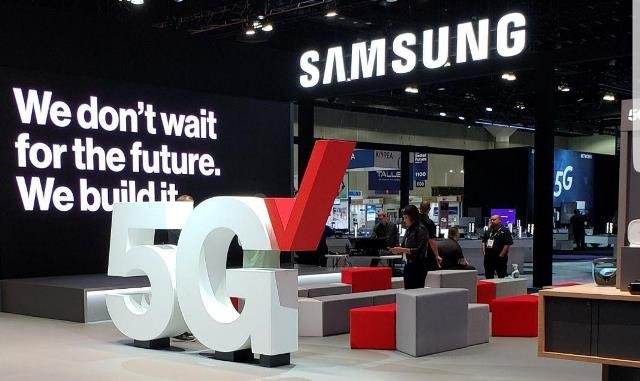Samsung today said its revenue from Networks Business has improved in Q4 20202 quarter-on-quarter by responding to 5G network expansion in South Korea as well as growing 4G and 5G services overseas.
 Samsung does not reveal its revenue from Networks Business.
Samsung does not reveal its revenue from Networks Business.
Telecom vendors’ from revenue from 5G core network business is expected to approach $1 billion in 2020, according to Dell’Oro Group.
Samsung’s network business division remains focused on a small number of country markets and hence faces revenue volatility. Samsung had a significant 5G win at Verizon recently, though, which should lift its 2021 results, according to MTN Consulting.
Samsung said it will continue with its network rollouts focusing on overseas markets including North America and Japan, and actively commercialize 5G network globally while seeking to expand new business opportunities.
“A lot of the 5G and 4G network projects were postponed in key countries in 2020 due to COVID-19. But the US went through or started a C-Band auction last December. There will be resumption of frequency auctions, for example, in countries like India. We do see business opportunities appearing throughout this year,” Yoon-Ho Choi, chief financial officer of Samsung, said.
“We are in 5G network trials with major carriers around the world using 5G technology and also, we’re continuing to explore new business opportunities in areas such as Latin America and Europe,” Yoon-Ho Choi said.
In 2021, telecom operator Capex is likely to grow 4 percent, offsetting the decline of 2020. The software component of capex will rise slightly to just under 20 percent, as software-based features and network automation solutions are more widely deployed.
Mobile operators’ 5G rollout plans will get back on track as more spectrum auctions complete and supply chains settle, according to MTN Consulting.
Samsung announced that its 5G RAN solutions received a Common Criteria (CC) certification against the Network Device collaborative Protection Profile (NDcPP), an internationally recognized IT security standards.
The company’s certified base stations are the first 5G products to be listed on the U.S. National Information Assurance Partnership (NIAP)2 Product Compliant List (PCL) and the Canadian Centre for Cyber Security’s Certified Product List.
Samsung’s 5G base stations, including its baseband unit and Compact Macro, received CC certification against the NDcPP, reaffirming their network security features and capabilities.
“This Common Criteria certification is a significant milestone that reinforces our leadership in network security,” said Sohyong Chong, Senior Vice President and Head of S/W R&D, Networks Business at Samsung Electronics. “Samsung will continue to provide reliable and secure solutions to help safeguard operators’ 5G networks.”
Samsung’s Compact Macro is currently deployed in commercial 5G networks across the globe, including Japan, Korea, and the U.S.
Samsung recently announced its latest 5G advancement with the recent rollout of the company’s vRAN 2.0 solutions, a fully virtualized commercial 5G RAN from a single vendor. This will help create more programmable networks that dynamically and efficiently provide the appropriate network resources to customers who use a variety of advanced wireless services and applications.
Verizon Wireless has deployed Samsung’s fully virtualized 5G solutions. Verizon shared details on this new virtualized network technology, along with the extension of their 5G network to millions of people in towns and cities across multiple U.S. regions.
Bill Stone, vice president of Planning and Technology for Verizon, said: “We push the boundaries of innovation in 5G, and deploying virtualization into our network from the core to the far edge is yet another way we are making our network more scalable and programmable to deliver the many promises of 5G.”
